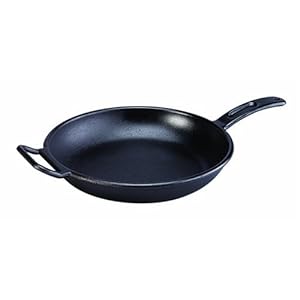I make omelets on an almost daily basis. I've been using a nonstick pan and it's time to replace it after about 2 years of heavy use. I've been thinking about buying a cast iron pan but don't know if I want to deal with the weight issue when cleaning. I've seen some of the lightweight cast iron pans but don't know what to think of them.
Should I just stick with a nonstick frying pan and plan on replacing it every few years? If so, can anyone suggest an affordable quality brand to consider?
Should I just stick with a nonstick frying pan and plan on replacing it every few years? If so, can anyone suggest an affordable quality brand to consider?


